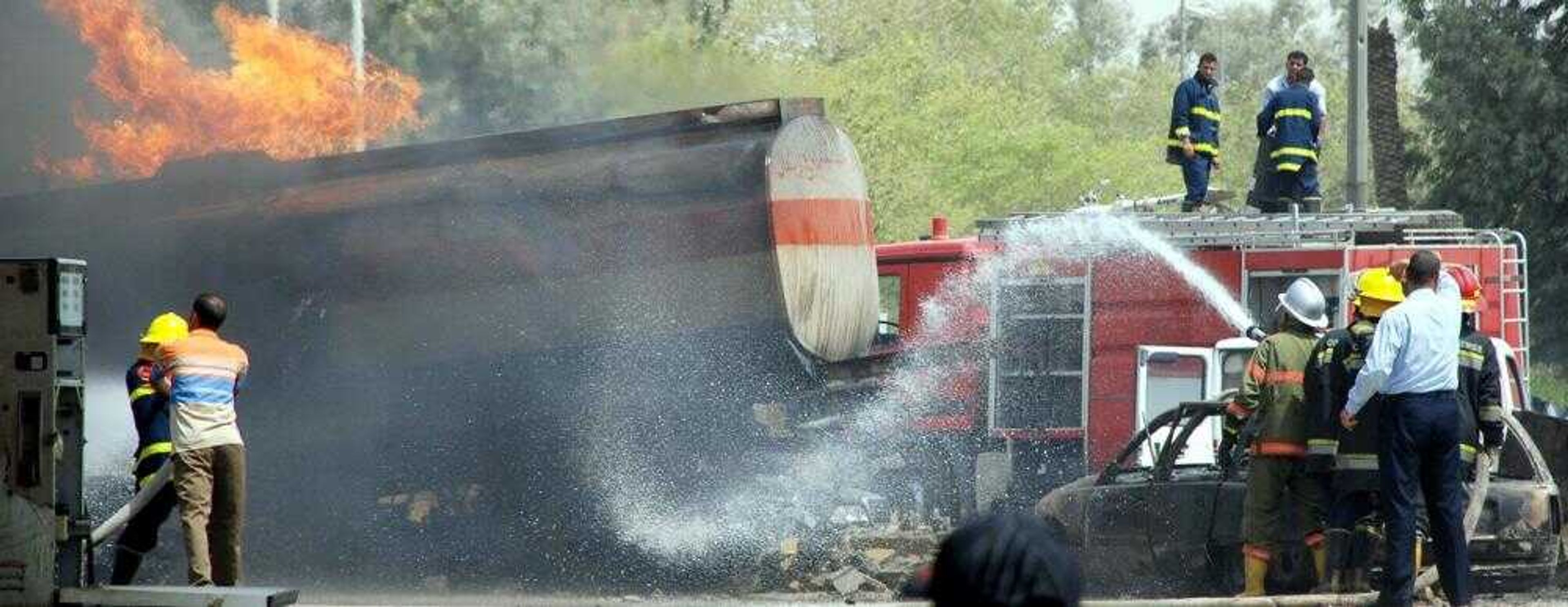Sunni bloc quits government; 142 die in attacks across Iraq
BAGHDAD -- Baghdad shook with bombings and political upheaval Wednesday as the largest Sunni Arab bloc quit the government and a suicide attacker blew up a fuel tanker in one of several attacks that claimed 142 lives nationwide. The Iraqi Accordance Front's withdrawal from the Cabinet leaves only two Sunnis in the 40-member body, undermining Prime Minister Nouri al-Maliki's efforts to pull together rival factions and pass reconciliation laws the U.S. ...
BAGHDAD -- Baghdad shook with bombings and political upheaval Wednesday as the largest Sunni Arab bloc quit the government and a suicide attacker blew up a fuel tanker in one of several attacks that claimed 142 lives nationwide.
The Iraqi Accordance Front's withdrawal from the Cabinet leaves only two Sunnis in the 40-member body, undermining Prime Minister Nouri al-Maliki's efforts to pull together rival factions and pass reconciliation laws the U.S. considers benchmarks that could lead to sectarian reconciliation.
The U.S. military announced the deaths of four more American soldiers, including three killed in Baghdad on Tuesday by a powerful armor-piercing bomb. The fourth soldier was killed by small arms fire on the same day. A British soldier also was killed Tuesday in a roadside bombing.
The American military announced it found a mass grave in Diyala province northeast of the capital. The grave contained 17 bodies of mostly Sunni Muslims -- including women, children and elderly people -- killed by al-Qaida in Iraq, the military said in a statement. U.S. forces did not say how they knew the attackers were al-Qaida in Iraq.
Altogether at least 142 Iraqis were killed or found dead, including 70 in three separate bombings Wednesday in Baghdad. The violence came after July ended as the second-deadliest month for Iraqis so far this year, but with the lowest U.S. death toll in eight months.
Washington has been pushing al-Maliki's government to pass key laws -- among them, measures to share national oil revenue and incorporate some ousted Baathists into mainstream politics. But the Sunni ministers' resignation from the Cabinet -- not the parliament -- foreshadowed even greater difficulty in building consensus when lawmakers return after a monthlong summer recess.
President Bush prodded al-Maliki to unite rival factions and show some overdue political progress, the White House said.
The two leaders spoke for 45 minutes in a secure video conference, part of a regular series of conversations on the war and Iraq's struggling democracy.
Rafaa al-Issawi, a leading member of the Front, said the decision to pull out of government was sealed by what he called al-Maliki's failure to respond to a set of demands put forward by the Accordance Front last week.
Among the demands: the release of security detainees not charged with specific crimes, the disbanding of militias and the participation of all groups represented in the government in dealing with security issues.
Connect with the Southeast Missourian Newsroom:
For corrections to this story or other insights for the editor, click here. To submit a letter to the editor, click here. To learn about the Southeast Missourian’s AI Policy, click here.










